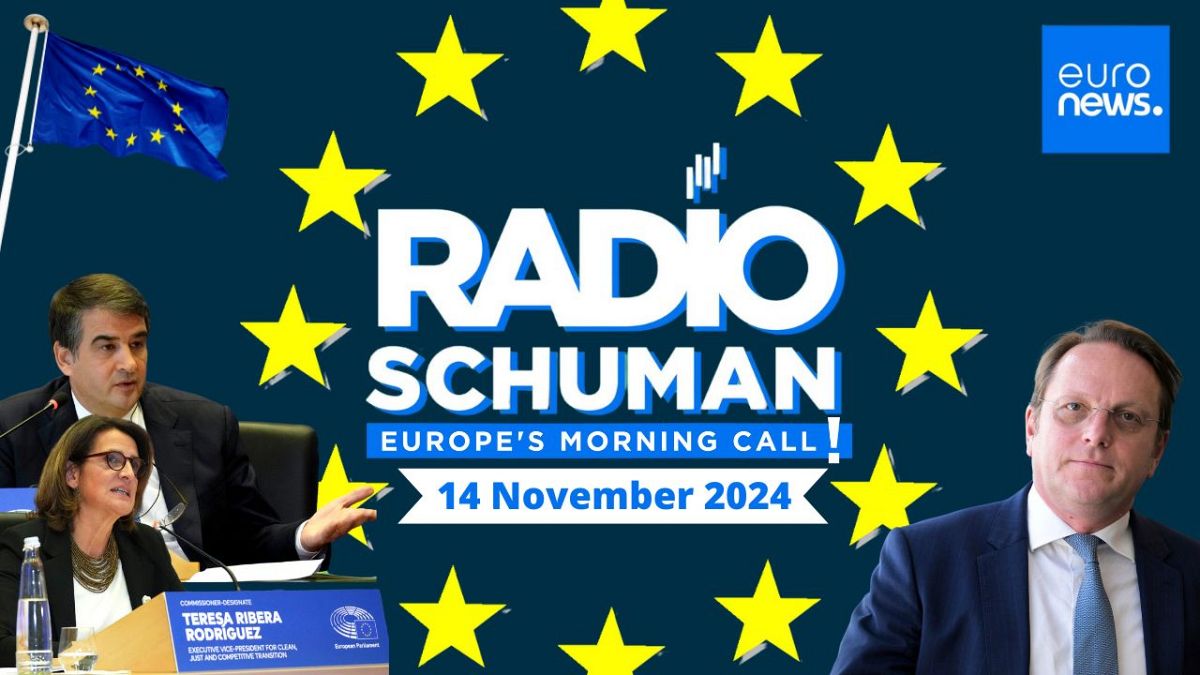The European Union institutions have currently been on hold since the European elections in June. The EU executive was set to be up and running on December 1st, but a clash among political groups may cause a delay in the start. Doubts are arising over whether the European Parliament will be able to approve the new European Commission, the EU’s executive arm, on November 27th as scheduled. The European People’s Party (EPP), which is expected to secure the most European commissioners, is threatening to block the appointment of Spain’s Teresa Ribera. They are demanding that the competition commissioner designate explain in a Spanish court why her government failed to anticipate floods in Spain that resulted in over 200 deaths and calling for her resignation if she is found responsible. In response, socialists and liberals have stated that they will not support the Italian candidate Rafaele Fitto, a member of Giorgia Meloni’s party, or the Hungarian candidate Oliver Varhelyi, due to their far-right affiliations and controversial stances. This political deadlock has prompted EU executive President Ursula von der Leyen to intervene, urging party leaders to reach an agreement before the next week’s Parliament plenary session.
Radio Schuman, together with Euronews’ Gerardo Fortuna, is analyzing the situation. Additionally, they are taking a quick look at the agenda for the day, including the ‘Pfizer gate’ hearing at the European Court of Justice in Luxembourg and EU ministers in Brussels making important decisions on the 2025 annual EU budget. In the final part of the show, Radio Schuman is exploring how high-speed battery-powered trains will revolutionize European rail travel. The show is hosted and produced by Maïa de la Baume, with journalist and production assistant Eleonora Vasques, and audio edited by Zacharia Vigneron and Georgios Leivaditis, with music by Alexandre Jas.
The European Union institutions have experienced a standstill since the European elections in June, with the EU executive scheduled to be up and running on December 1st. However, a clash among political groups is causing uncertainty, as doubts arise over the approval of the new European Commission by the European Parliament on November 27th. The European People’s Party (EPP), expected to secure the most European commissioners, is threatening to block the appointment of Spain’s Teresa Ribera, demanding an explanation for her government’s failure to anticipate floods in Spain that resulted in over 200 deaths. Socialists and liberals are also refusing to support certain candidates due to their far-right affiliations, leading to a political deadlock that has prompted EU executive President Ursula von der Leyen to intervene.
Radio Schuman, along with Euronews’ Gerardo Fortuna, is delving into the situation, as well as covering the ‘Pfizer gate’ hearing at the European Court of Justice in Luxembourg and important decisions being made by EU ministers in Brussels regarding the 2025 annual EU budget. The show also explores the potential impact of high-speed battery-powered trains on European rail travel. Hosted and produced by Maïa de la Baume, with contributions from journalist Eleonora Vasques and audio editing by Zacharia Vigneron and Georgios Leivaditis, Radio Schuman provides a comprehensive analysis of current EU affairs and developments.
The current political deadlock within the European Union institutions has raised concerns and uncertainties regarding the approval of the new European Commission by the European Parliament. With the European People’s Party threatening to block the appointment of a commissioner and socialists and liberals refusing to support certain candidates, there is a growing need for consensus and agreement among party leaders. EU executive President Ursula von der Leyen has intervened to urge a resolution before the next Parliament plenary session, emphasizing the importance of cohesion and cooperation in the decision-making process.
As the situation unfolds, Radio Schuman provides in-depth coverage and analysis, shedding light on the various political dynamics at play and the potential implications for the future of the EU. From the ‘Pfizer gate’ hearing to the discussions on the annual EU budget, the show offers a comprehensive overview of the key events shaping the European political landscape. Furthermore, the exploration of high-speed battery-powered trains highlights the ongoing innovations and advancements in European transportation infrastructure, underscoring the region’s commitment to sustainable and efficient travel solutions.
With a team of experienced journalists and experts, Radio Schuman delivers critical insights and engaging discussions on the most pressing issues facing the European Union. By examining the current challenges and opportunities within the EU institutions, the show provides a valuable resource for audiences seeking to understand the complexities of European politics and policy-making. As the political impasse continues, Radio Schuman remains a reliable source of information and analysis, offering a platform for dialogue and debate on the future of the European Union and its role in the global community.











